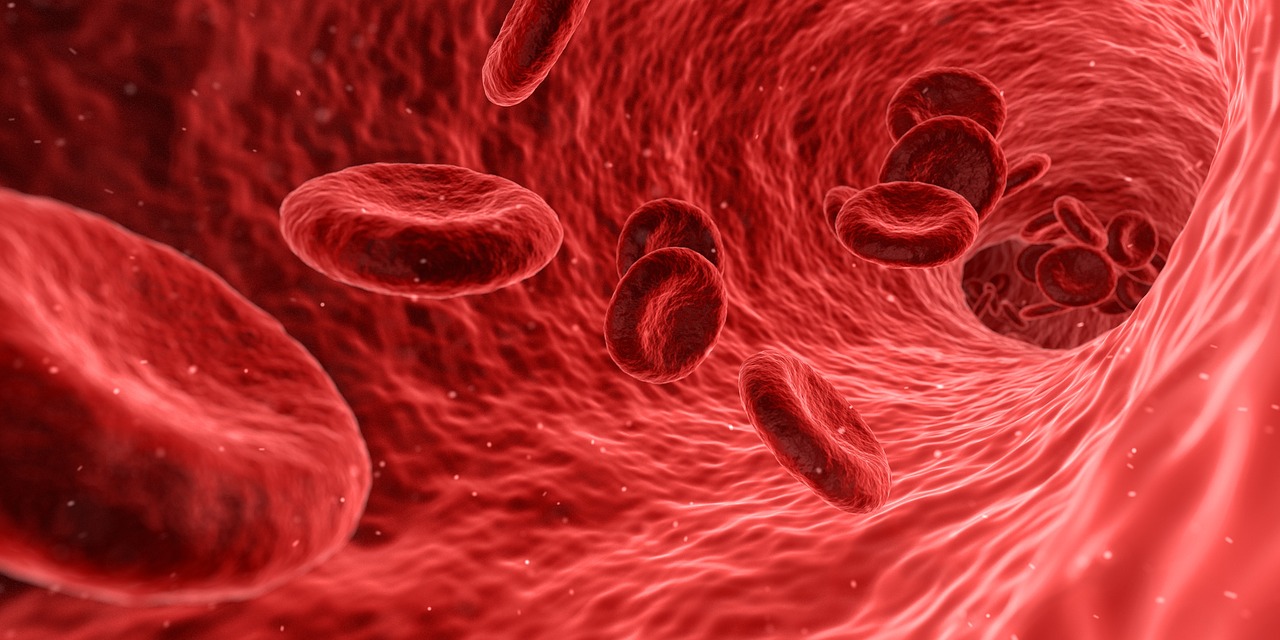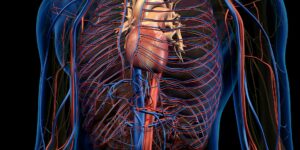 Imagine that your blood vessels are like an intricate system of elastic pipes or tubes made of various sizes. Blood circulates from your heart to every part of your body through this maze of pipes, and then returns back to the heart. Arteries carry blood away from the heart, and veins return blood back to the heart, making up the circulatory system.
Imagine that your blood vessels are like an intricate system of elastic pipes or tubes made of various sizes. Blood circulates from your heart to every part of your body through this maze of pipes, and then returns back to the heart. Arteries carry blood away from the heart, and veins return blood back to the heart, making up the circulatory system.
This is a simplistic analogy of the circulatory system, but it may be a helpful image when understanding diseases circulatory or vascular systems. Any condition that affects your circulatory system is considered vascular disease. This includes diseases of your arteries, veins, and lymph vessels, as well as blood disorders that affect circulation.
Let’s take a brief look at some of the most common types of vascular disease, and then assess whether or not you’re at an increased risk of developing any of them:
Common Types Of Vascular Disease
Carotid Artery Disease (CAD)
Carotid artery disease (CAD) is a blockage or narrowing in the arteries that supply blood and oxygen to the brain. CAD can lead to a transient ischemic attack (TIA), or a stroke.
Peripheral Artery Disease (PAD)
Peripheral arteries are the blood vessels outside your heart. Just like the blood vessels of your heart (coronary arteries), the inside walls of your peripheral arteries can become narrowed or blocked by the build-up of fat and cholesterol deposits, called plaque.
Aortic Aneurysm
An aneurysm is essentially an abnormal bulge in the wall of a blood vessel. While aneurysms can form in any blood vessel, they most commonly occur in the aorta, which is the largest artery in your body that carries oxygen-rich blood away from the heart to all parts of the body.
The part of the aorta that runs through the chest is called the thoracic aorta and, the part of the aorta that extends down through the abdomen is called the abdominal aorta. Most aneurysms occur in the abdomen, and abdominal aortic aneurysms occur more frequently in people over age 60 and it’s more common for men to be affected by aneurysms than women.
Are You At Risk For A Stroke, PAD, Or Aneurysm?
Certain medical conditions, lifestyle choices, and genetics can influence a person’s risk of having a stroke, peripheral arterial disease, or an abdominal aortic aneurysm.
You might be at a higher risk for developing vascular diseases if you:
- Are over the age of 60.
- Have high cholesterol.
- Have high blood pressure.
- Are overweight.
- Are diabetic.
- Have smoked or currently smoke, or chew tobacco.
- Have a family history of hardening of the arteries or vascular diseases.
If you have answered yes to any of these questions, you could be at an increased risk for having a stroke, abdominal aortic aneurysm, or peripheral arterial disease, and it would be wise to have a screening to assess the health of your arteries and veins.
Vascular Screenings
At Evansville Surgical Associates, our specialized technologists and surgeons perform thousands of vascular screenings each year for:
- Carotid Artery Disease
- Peripheral Arterial Disease
- Abdominal Aortic Aneurysm
Screenings are only $35.00 for each, or $100.00 for all three.
For some people, vascular disease can be managed with diagnostic expertise and preventative care. In other cases, minimally-invasive endovascular or traditional surgical techniques may be necessary.
Surgical Procedures include:
- Diagnostics and therapeutic minimally invasive procedures, including angioplasty and stenting of peripheral, carotid, and arteries involving the abdomen.
- Open vascular procedures, such as aneurysm repair, arterial bypass grafts, and carotid endarterectomies.
- Minimally-invasive endovascular repair of abdominal aortic aneurysms (AAA)
The board certified vascular surgeons at Evansville Surgical Associates specialize in the comprehensive treatment of vascular disease at any stage—from preventative care and education, to screenings and diagnosis, to surgical treatment when necessary—so that you can enjoy optimal health.
Evansville Surgical Associates provide a variety of vascular surgical procedures by our board certified vascular surgeons in our IAC-accredited Vascular Lab. Our registered vascular technologists have nearly 34 years of combined experience and are registered in vascular technology by the American Registry of Diagnostic Medical Sonographers (ARDMS).
Established in 1969, Evansville Surgical Associates celebrates 50 years of providing leading-edge comprehensive and compassionate surgical care. Learn more about our physicians and our practices by visiting our website, or by calling us at 812.424.8231 or 800.264.8231.



